Roberto Dove is the new director-general of Mozambique's Institute of Cultural and Creative ...
Mozambique: Makonde wood-carvers fight on to keep tradition alive in times of war
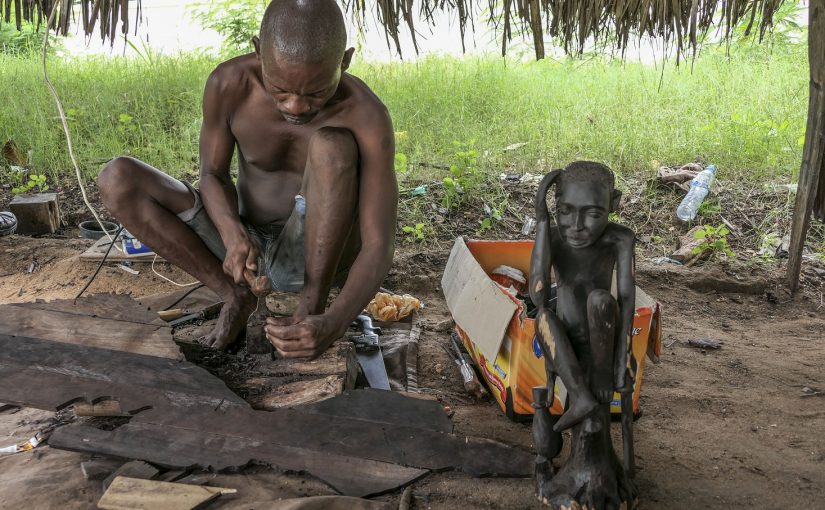
Photo: Rui Celestino/Lusa
Sculptors from northern Mozambique are now teaching children to try to preserve the Makonde’s tradition of wood carving, one of the arts threatened by the armed insurgency in the region.
“We have children here to learn: in total there are ten, and they only stopped showing up because of the Covid-19 pandemic,” Ntumbati Kunhangama, the spokesman for the ‘Associação Arte Africana Maconde’, explained to Lusa from the studio he supervises in Pemba, provincial capital of Cabo Delgado.
Before the war, Makonde sculpture was one of the most celebrated themes in the region, for its mastery of transforming wood into traditional figures of local tradition and culture.
Now, the mass exodus has left villages empty, and preserving local traditions has become more of a challenge.
Meanwhile in Pemba, very Saturday and Sunday afternoon, children aged 10 to 16 years of age spend their free time learning wood-carving from their elders.
From the trunks stories emerge, through the face of an elderly Makonde with tattoos, a symbol of transition between adolescence and adulthood, a sculpture of men with a gourd and knife at their waist, a portrait of combatants from the time of the liberation struggle against the Portuguese colonial regime.
There is also a boat that depicts the arrival of Portuguese explorer Vasco da Gama to the African continent, explains Cristovão Vicente, a 52-year-old sculptor, starting a new piece with a chisel.
History intersects with the present. A piece depicting population on the move alludes to the extremist violence plaguing Cabo Delgado since 2017.
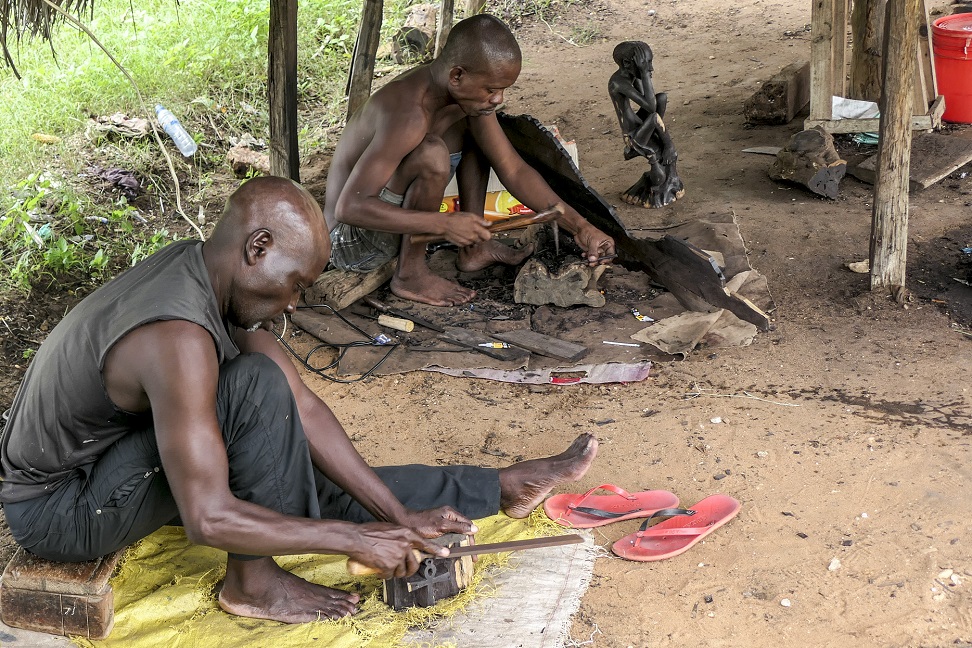
Cristovão Vicente explains that each such event “is an opportunity” for sculptors to express their ideas or concerns through their arts.
“Here are people with luggage fleeing terrorism, without clothes, with firewood on their heads,” he describes.
There are also more utilitarian pieces – wood canes or walking sticks, fruit of a craft which draws its origins from local rituals, explains Kunhangama, 47, a sculptor of ten years’ standing.
The Makonde people of Nandimba, in the district of Mueda, north of Cabo Delgado province, are credited with the first masks men wore during dances in celebration ceremonies.
Whatever the celebration, whether for an achievement, a good harvest or a victory, it would be marked with a unique wooden mask.
In the midst of the insurgency to which Cabo Delgado ihas been reduced to in the international news, sculptors Kunhangama and Vicente resist, and keep the tradition alive.
For how long, they don’t know, because the war has driven away the tourists, and with them, their income. On the other hand, those who buy sculptures from them sometimes pay as much as triple in ‘fees’ at Pemba airport.
“It’s no secret. For example, if we sell a piece for 1,500 meticais, they ask for three times as much [at the airport], so nobody can take a carved product out. Only small things, because they go into a suitcase,” Kunhangama concludes.
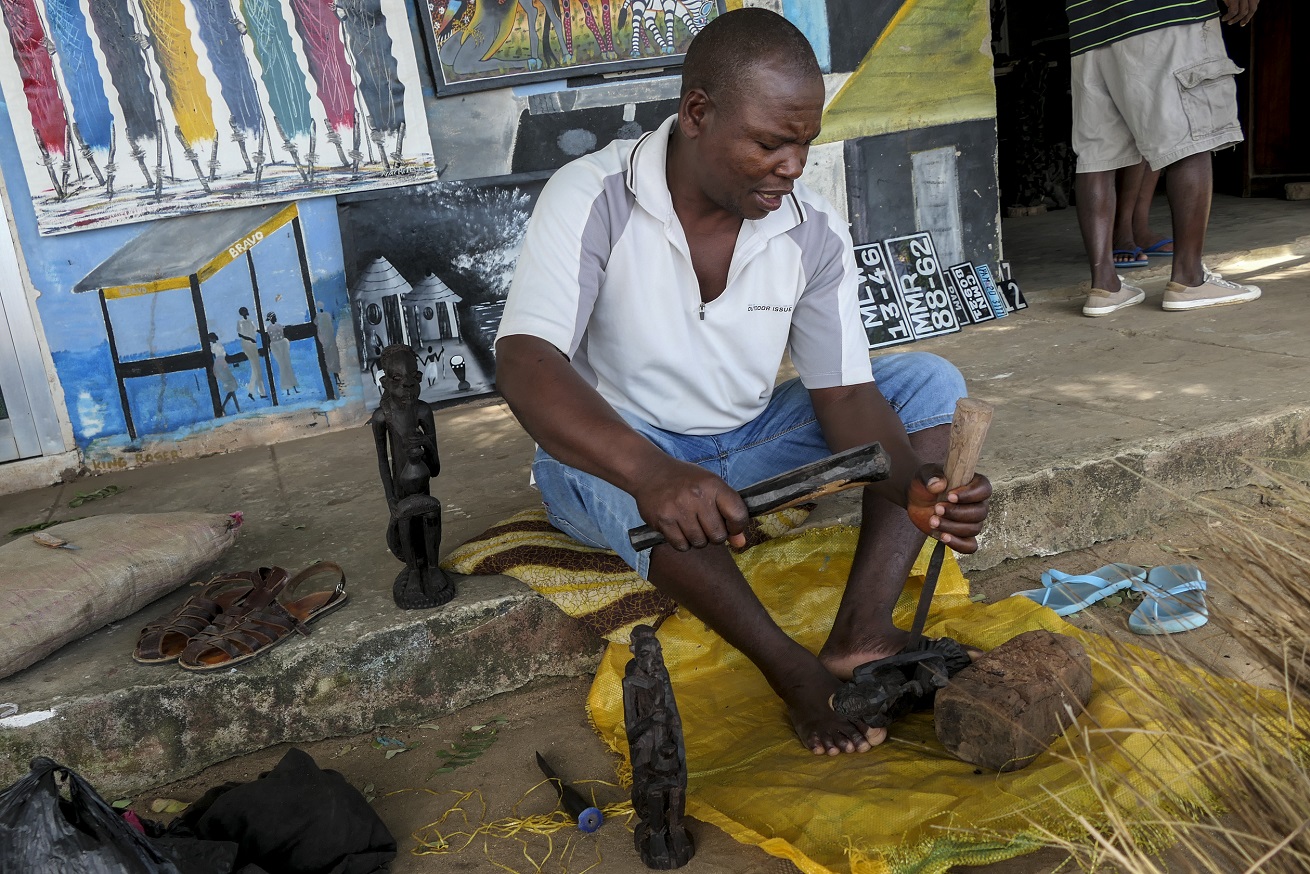
Cabo Delgado province, in northern Mozambique, is rich in natural gas, but has been terrorized since 2017 by armed rebels, with some attacks claimed by the Islamic State extremist group.
According to the International Organisation for Migration (IOM), about 784,000 persons have been internally displaced by the conflict, which has killed about 4,000, according to the ACLED conflict registry project.
Since July 2021, an offensive by government troops, with the support of Rwandan and later Southern African Development Community (SADC) troops, has recovered a number of areas from rebel control, but their flight has led to new attacks in districts through which they have since passed or taken up temporary refuge.






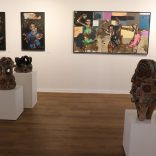

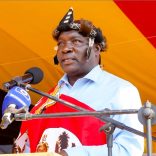




Leave a Reply
Be the First to Comment!
You must be logged in to post a comment.
You must be logged in to post a comment.